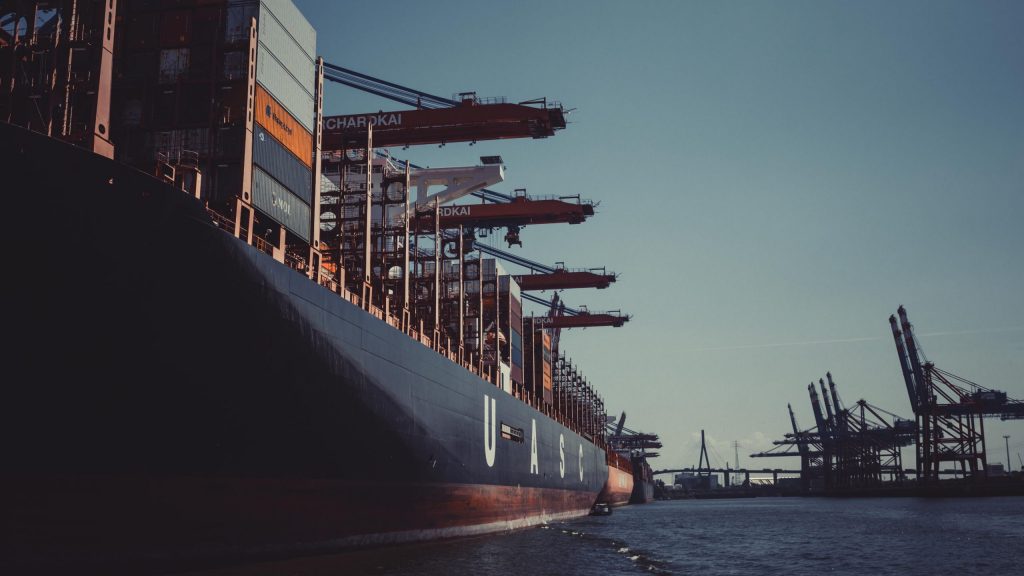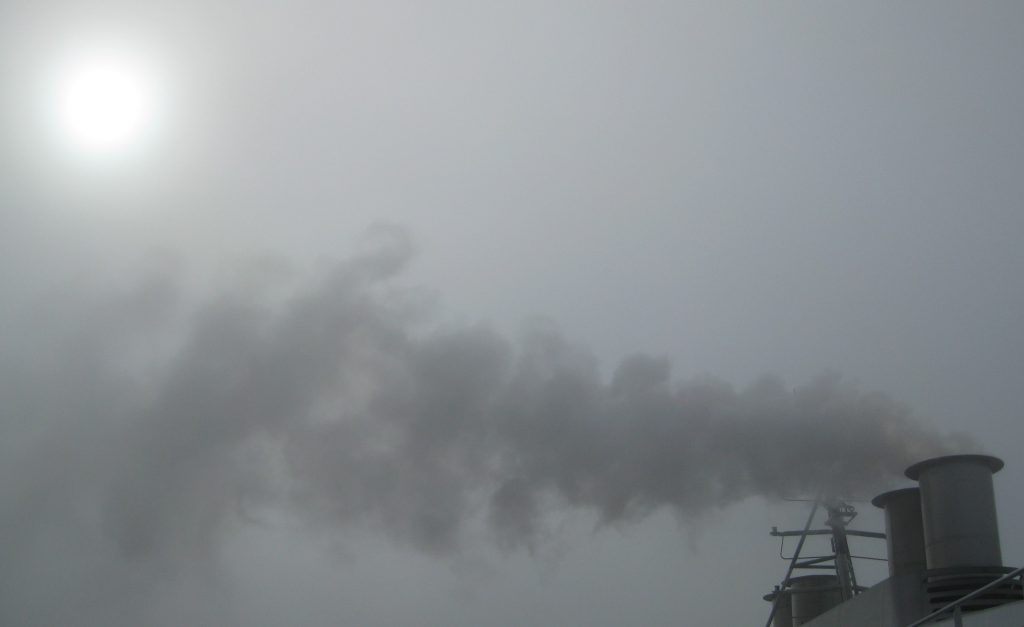
Although the international shipping industry accounts for nearly three per cent of global Greenhouse Gas emissions and is a major emitter of air pollutants, it was left out of the Paris Agreement in 2015. Due to the peculiarities of global ship operations and the high mobility of ships, the question of how to reduce international shipping emissions has been referred to the United Nations’ dedicated maritime agency, the International Maritime Organization (IMO) in London. The IMO has adopted several global maritime conventions for environmental protection and maritime safety, the oldest of which came into existence after the sinking of the “Titanic” in 1912.27Today the IMO’s MARPOL Convention is the main international vehicle for maritime environmental protection.
In response to the signing of the Paris Agreement, the IMO adopted an initial strategy for the reduction of greenhouse gas emissions from international shipping in 2018. The strategy expressed the goal of halving emissions by 2050 relative to 2008, but this goal has proven to misalign with the Paris’ Agreements 1.5 Degrees Celsius objective, and international shipping emissions continue to rise. The IMO members have therefore started negotiating a revision of the strategy, which could potentially strengthen the levels of ambition and pave the way for new types of global, maritime climate regulation. In these negotiations, much is at stake for the 175 IMO member countries members, and some of the classical divides between developed and developing countries about burden sharing and emissions reduction, known from the global climate negotiations in the UNFCCC, also surface in the IMO. Nevertheless, negotiations also differ from UNFCCC because the global emissions from mobile ships are difficult to allocate to national emissions inventories. The IMO has also prided itself as the first international organization to set global “mandatory energy efficiency measures for any transport sector” in 2011, signaling to the world that it sees itself as having sufficient capacity to address the difficult regulatory discussions.
For developing countries, climate change mitigation and the IMO negotiations are highly important for many reasons. The countries suffer from climate change and have a high dependence on cheap seaborne transportation for their imports and exports. Many of them have large ports, and some register a large part of the world fleet. Stricter environmental regulation would benefit developing countries in the form of climate change mitigation as well as improvements of local air quality in port cities, but could potentially affect trade through rising freight rates. Another important matter to keep in mind is the ongoing IMO discussions concerning the possible introduction of a global market-based measure, such as a global tax on marine fuel. Such a mechanism could potentially generate very large funds while facilitating the uptake of low-emission fuels. It is expected that the IMO member states will discuss such measures in the coming three years, and discussions on how to use funding are likely to be intense and difficult. For some developing countries, not least in Africa, new business and job opportunities could also come from the production of low-emission marine fuels from wind and solar energy.
Despite the obvious high stakes, the maritime GHG discussions have not attracted so much attention in many African countries. Research on environmental governance and global environmental politics has also neglected the engagement of developing countries in maritime emission abatement efforts, focusing only on their presence in the UNFCCC context.
The low profile of African countries in the IMO contrasts with many developed countries, which often have vested interests in maritime trade, ship-owning, marine equipment manufacturing, or shipbuilding. They send large delegations to IMO meetings, with representatives both from their environmental protection and transportation agencies, and they frequently make submissions to the IMO and set the agenda for the meetings. In contrast, some African countries rarely or never go to IMO meetings. Some send small delegations to London, but change delegation membership very frequently. Most African countries very rarely make submissions to the IMO, if ever. The relatively low African profile in the IMO also contrasts with the same countries’ strong engagement in the global climate negotiations in the UNFCCC. Previous research has shown that developing countries in the Pacific Ocean, which are suffering from climate change and depend on seaborne transportation, gained substantial influence on IMO’s initial GHG strategy in 2018. These countries engaged effectively in discussions in London and gained a strong voice despite the small sizes of their economies and populations. Influence does not appear to be proportional to GDP per capita or the size of the national merchant fleet, but it is clear that a stronger African participation in the IMO and the development of more inclusive maritime governance will be critical in the reduction of maritime emissions.

In our new research project Environmental Maritime Governance in Kenya (EMG-K), we study Kenya’s engagement in the IMO’s negotiations. Kenya has a special position in the IMO, being a member of the IMO’s Council, which is the IMO’s executive organ. The country is home to the gateway port of Mombasa, which serves an extensive hinterland in South Sudan, Uganda, Rwanda and the eastern part of the Democratic Republic of Congo. Having historically focused on land-based resources, over the last decade Kenya has paid increasing attention to its ocean economy, viewing it as a key enabler of its national development blueprint and Mombasa port is a crucial infrastructure for the entire East African region. However, Kenya has very rarely made submissions to the IMO. Like many developing countries, the country faces the challenge of facilitating economic development via its growing maritime trades while protecting the global climate and local air quality. Kenya’s maritime engagement encapsulates one of the major dilemmas relating to international trade and environmental governance: facilitating economic development while protecting the global climate and local air quality.
The EMG-K project, established by a Kenyan-Danish research consortium, studies how Kenya engages in the IMO and will suggest ways to make maritime governance mechanisms more inclusive and enable Kenya and other African countries to participate more effectively in the IMO negotiations and maritime emission reduction efforts. We will employ ethnographic research methods, with observation studies during meetings in London and Kenya. We will also study the IMO’s archives and interview key stakeholders involved in these processes. We will suggest ways to strengthen Kenya’s maritime governance capacity and support Kenya’s efforts to mitigate climate change and improve local air quality. In doing so, we will drive forward the literature on environmental governance and global environmental politics from a developing country perspective and shed new light on international shipping.
The Kenyan-Danish research consortium behind the project consists of the Centre for Business and Development Studies (CBDS) at Copenhagen Business School, the Centre for Advanced Studies in Environmental Law & Policy (CASELAP) at the University of Nairobi, and the Institute for Environmental Law and Governance (ILEG) in Nairobi. More than ten staff members from the three partner institutions are involved in the project, and the Danida Fellowship Centre has kindly provided funding for the project, which runs over three years.
To read more, please click here: http://drp.dfcentre.com/project/environmental-maritime-governance-in-kenya-emg-k-policy-practice-and-prospects-for-the-abatement-of-shipping-air-emissions/
